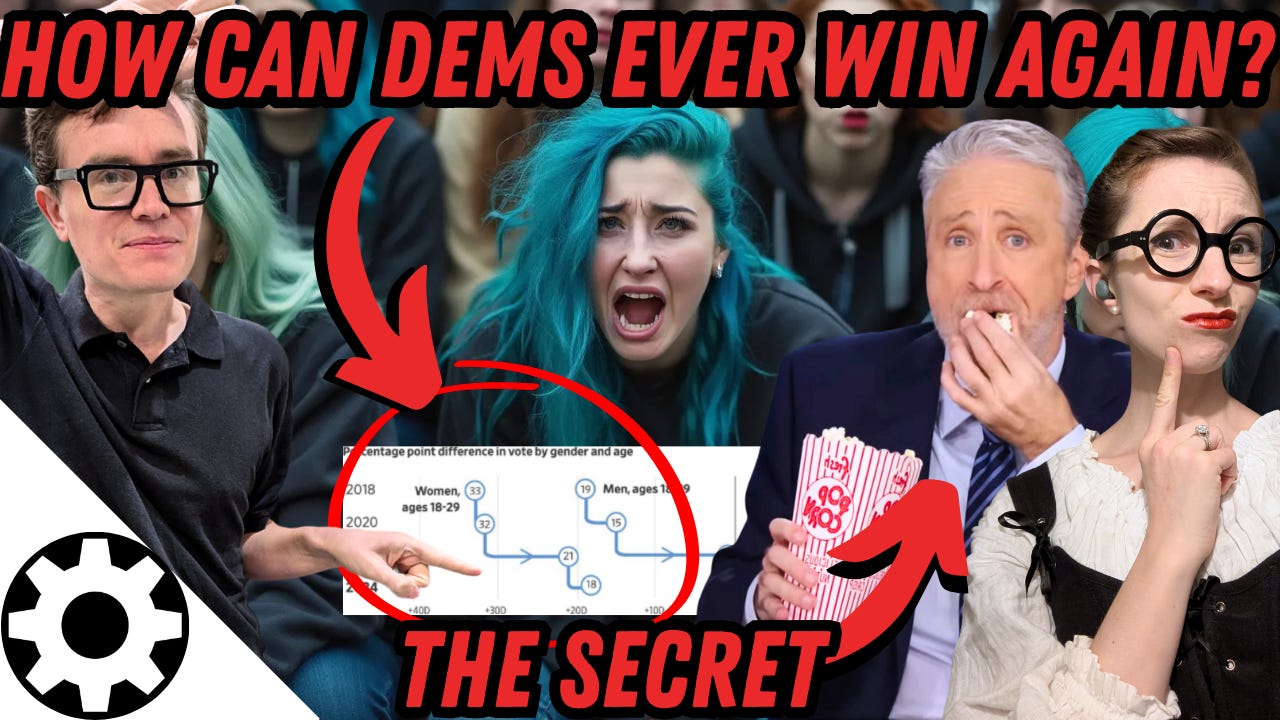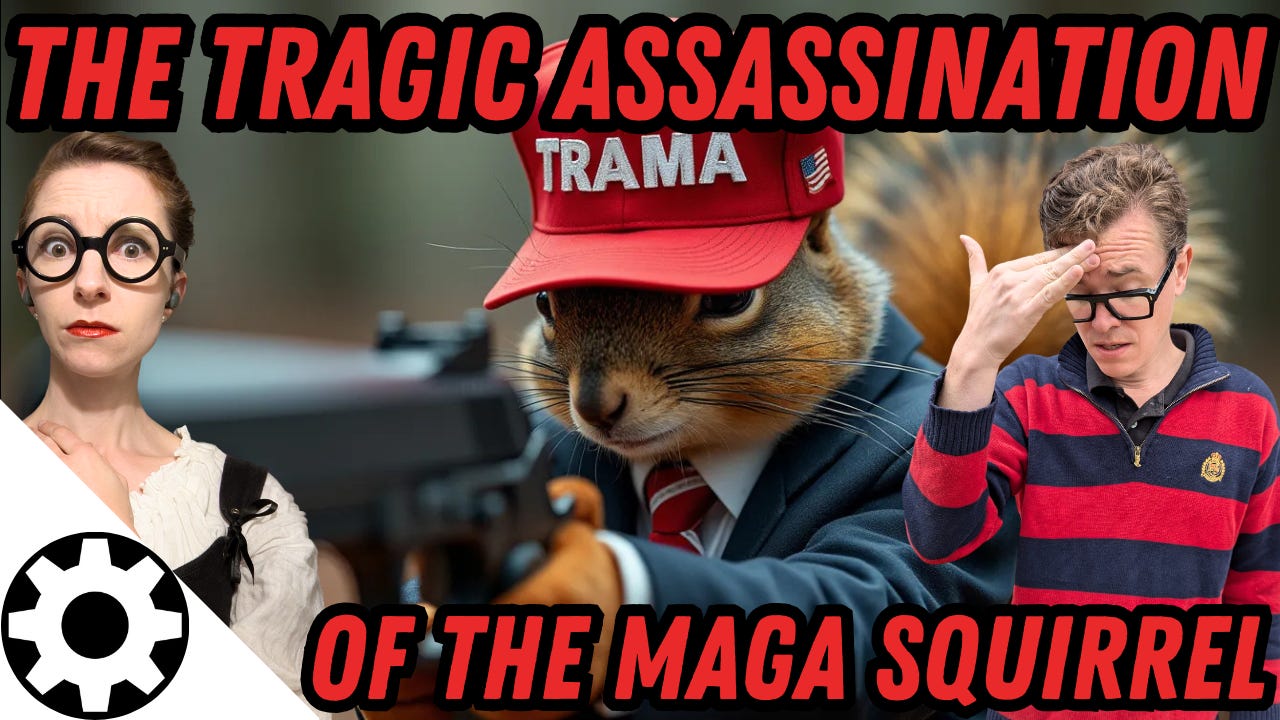Learning From Mossad: What Exploding Pagers Can Teach Us About Getting a Job
Description
Tactical Mastery: How Mossad's Ingenious Pagers Dismantled Hezbollah In this episode, the hosts delve into the meticulous and strategic operations of Mossad, Israel's intelligence agency, that led to a significant strike on Hezbollah. They explore the sophisticated tactics used, including the installation of explosive devices in pager batteries and walkie-talkies, which effectively maimed Hezbollah operatives and disrupted their communication network. Through an in-depth analysis of these events, the conversation sheds light on the precision and ingenuity behind Mossad's actions, while intentionally setting aside the moral debates to focus purely on their tactical execution. Additionally, the hosts draw parallels between these intelligence strategies and modern marketing techniques, discussing relevance in business and non-profit advocacy. The conversation is rounded off with broader reflections on conflict resolution strategies and the responsibilities of leadership in making tough decisions.
[00:00:00 ]
Malcolm Collins: Hello simone today. We are going to be talking about an interesting topic, which actually Is transformed the way that we personally think about things like looking for jobs, attracting press and attracting donors, which was how Mossad, that's Israel's intelligence agency, pulled off the major strike on the On Hezbollah and a lot more information has come out about this over time.
So I'm going to try to paint a full picture, including a lot of things that I'm pretty sure that even you didn't know, Simone, here's, for example, an interesting one. I didn't know. Did you know about the security feature? A thing on this where to decode a message with the pager that they had sold to Hezbollah.
You needed to have both hands on the device.
Simone Collins: Oh, interesting.
Malcolm Collins: Wow. The way it worked is they built a security feature where you could only decode it encoded [00:01:00 ] Hezbollah message. If you had both of your hands on the device, like holding it in different locations, which ensured. When they send out the initial thing to make the devices explode it only exploded when people were answering this specific coded message.
So they had to have both of their hands on the device when it exploded, which ensured that bunch of their
Simone Collins: proximity, like someone didn't have a pager sitting on their nightstand and so
Malcolm Collins: there were two different instances of the explosion. The first instance was they sent out a coded message. And then anybody who hadn't answered that message, their pagers then later exploded like the next day or something all at once.
But the important thing about the message is it removed these people from fighter capabilities. If you don't have your two hands, whatever other injuries you have, you can't shoot a gun. And so the goal there was to remove them from fighter capabilities. There's all sorts of cool stuff like that, that you will learn.
And I just like to As we go [00:02:00 ] into this, I am not going to give my standard Israel, Hamas, Hezbollah rant this time. So just I'm sort of leaving morality at the door. What
Simone Collins: we're talking about here is the tactical that went into Mossad's actions, which for those who have been living in a cave. They managed to get that is to say, Mossad, Israel's intelligence apparatus, managed to get a hostile entity, Mossad to purchase a bunch of pagers that it had created that were, that had embedded bombs that were used for monitoring and this was done for years.
And then recently, this year, they detonated them, maiming quite a few people. Basically a huge devastating attack, not just in terms of one sort of violent strike that took place on one day, but also sort of dismantling their communication infrastructure. So this was a very impressive feat.
We're [00:03:00 ] not talking about what was right or wrong morally. What we're talking about is how they got to do this and what, in terms of operating tactically as humans. Businesses, non profits, advocates.
Malcolm Collins: So, again, just leaving all of the morality out of this, all of the, well, they killed this many people. Well, they killed this many people. That's not the point of this particular talk.
And if you want to see us go on and on about Israel, Palestine, the moral weight of the equation, we do that in plenty of other episodes. In this particular episode, we are going to focus on how this was all accomplished. So the gist,
the pagers went off around 3. 30 p. m. All in all, this particular attack injured around 3, 000 individuals. And keep in mind that for most of those individuals, it was losing both their hands. So it disabled them in terms of being fighters. Did it
Simone Collins: like completely lose their hands? Like, I just, I never really heard that much about what actually happened.
Like, how bad
Malcolm Collins: hands. As I said, they had to have both hands on it for it to go off. Wow. [00:04:00 ] Well, I mean, but that,
Simone Collins: like, were their hands just burned or were they literally blown off?
Malcolm Collins: Blown off.
Simone Collins: Wow. Okay.
Malcolm Collins: 30. Now, now, some of them were in the second round of the attack, but it seems like the vast majority were in this initial round because they, it went around.
Don't touch them after that. Get them away from you. So, 37 died in total, and that included at least, if we are to believe the governments that were in league with Hezbollah two children, one 8 year old and one 11 year old.
Sad, but again, I'm always a little skeptical of the governments that are involved in this stuff.
So, let's go and talk through how the plan actually worked. But, the fir And I will notice actually kind of remarkable how targeted this attack was when you consider broad attack operations that it didn't just mostly target individuals just in Hezbollah, but specifically high level command and operation individuals who would have had access to these.
And then it was [00:05:00 ] followed up almost immediately afterwards, a few days afterwards with. An explosion of a second booby trap device that many of them had, which was their walkie talkies, which had actually not just been booby trapped, but booby trapped in a completely separate instance of booby trapping, which we'll get to.
And I'd been transmitting everything Hezbollah had been saying over them to Masaad for the past 10 years. This is like
Simone Collins: a level of spycraft that I feel is, is, is cinematic. It is. Yeah. Unbelievable. In the sophistication
Malcolm Collins: specifically with the walkie talkies. The first part of this involved rigging the walkie talkies was oversized batteries that concealed explosives, allowing massage to ease drop on Hezbollah communications for nearly a decade.
The walkie talkies were distributed as early as 2015, giving Israel full access to Hezbollah's communication network while lying dormant as potential bombs ready to be detonated at a moment's notice. One interesting fact that we can now ferret [00:06:00 ] out is that it does appear that Hamas did keep the January 7th attacks secret from Hezbollah, because if Hezbollah had known Israel would have done
Simone Collins: right.
And you've kept saying, like, how could it possibly be that Mossad had this level of infiltration of Hezbollah when Hamas was planning all this and they didn't know that Hamas was planning for October 7th, but theoretically, it could be really nailing it in, you know, You know, he statistics and just bomb history like it.
It happens, right? So,
Malcolm Collins: yeah. So, in 2022, a new opportunity arose leading Hamas to focus on a more innovative device. The AR 924 pager. Now I will note actually with the walkie talkie device. One of the things that was actually in a lot of people consider this pretty bad form that this was done is because they went off so soon after the first device, many of them ended up going off at the [00:07:00 ] funerals of the first round of victims which is generally considered very bad form in conflict, but it was incredibly effective.
And we'll get to this at the end here, but Hezbollah has basically been almost entirely dismantled at its core. Network level and upper levels to the extent that people are calling this the best both intelligence and counter terrorism or operation run in the past century. And that it was like, like better than anything that was done during World War II, better than anything that was done during the Cold War in terms of its effectiveness and just completely taking this down.
And there's been Because they were also
Simone Collins: preying upon, basically, well, you can't Use email, you can't use cell phones, you can't use any modern form of technology because other intelligence forces, including facade are monitoring those. And so ultimately, it's the facade through it's it's. So many levels pushed, pushed Hezbollah to these devices.
It's [00:08:00 ] not like they want to just use pagers and walkie talkies. They were doing that because already Mossad's prowess in cyber warfare was so strong. So there's like attacks on all sides.
Malcolm Collins: Yes. And one of my favorite memes that came out of this with the Babylon Bee article, Rashib Taleb uninjured after her pager mysteriously explodes.
This is a very pro Palestine American politician. But anyway, to continue here, let's start with the con
























